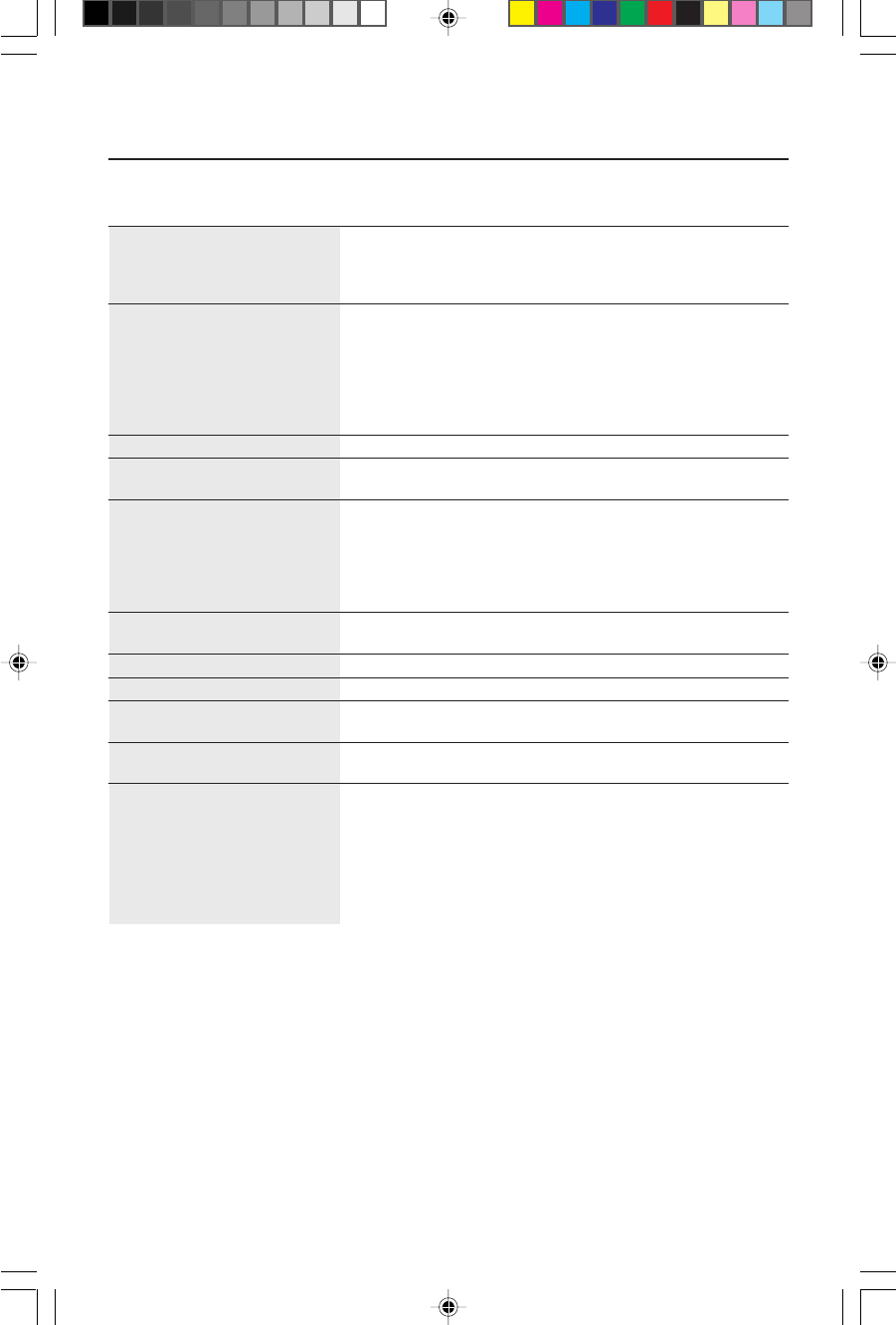
Specifications
8
Monitor MultiSync
®
LCD400V
™
Notes
Specifications Monitor
LCD Module Diagonal: 14.1 inch Active matrix; thin film transistor (TFT)
Viewable Image Size: 14.1 inch liquid crystal display (LCD); 0.28 mm dot
Native Resolution (Pixel Count): 1024 x 768 pitch; 200cd/m
2
white luminence;
150:1 contrast ratio, typical
Input Signal Video: ANALOG 0.7 Vp-p/75 Ohms
Sync: Separate sync. TTL Level
Horizontal sync. Positive/Negative
Vertical sync. Positive/Negative
Composite sync. (Positive/Negative) (TTL Level)
Sync on Green video (Positve) 0.7 Vp-p and sync.
Negative 0.3 Vp-p
Display Colors Analog input: Unlimited number of colors Depends on display card used.
Synchronization Horizontal: 24.8 kHz to 60 kHz Automatically
Range Vertical: 56.2 Hz to 85.1 Hz Automatically
Resolutions Supported 720 x 400: VGA text
Some systems may not support
Resolution based on
horizontal and
640 x 480* at 60Hz to 85Hz
all modes listed.
vertical frequencies only
800 x 600* at 56Hz to 85Hz
832 x 624* at 75Hz
1024 x 768 at 60Hz to 75Hz ....................
NEC cites recommended resolution at
60 Hz for optimal display performance.
Active Display Area Horizontal:
286 mm/11.3 inches Dependent upon signal timing used,
Vertical:
214 mm/8.4 inches and does not
include border area.
Power Supply
AC 100 – 120 V/220 – 240 V @ 50/60 Hz
Current Rating 0.7A @ 100
–
120 V/0.4 A @ 220 – 240 V
Dimensions
357 mm (W) x 362 mm (H) x 168 mm (D)
14.1 inches (W) x 14.3 inches (H) x 6.7 inches (D)
Weight 5 kg
11 lbs
Environmental Considerations
Operating Temperature: 5°C to +35°C/41°F to 95°F
Humidity: 30% to 80%
Feet: 0 to 10,000 Feet
Storage Temperature: -10°C to +60°C/14°F to 140°F
Humidity: 10% to 85%
Feet: 0 to 45,000 Feet
* Interpolated Resolutions: When resolutions are shown that are lower than the pixel count of the LCD module, text may
appear choppy or lines may appear to be bold. This is normal and necessary for all current flat panel technologies when
displaying non-native resolutions full screen. In flat panel technologies, each dot on the screen is actually one pixel, so to
expand resolutions to full screen, an interpolation of the resolution must be done. When the interpolated resolution is not
an exact multiple of the native resolution, the mathematical interpolation necessary may cause some lines to appear thicker
than others.
NOTE: Technical specifications are subject to change without notice.
78133331 9/25/98, 12:46 PM10

















